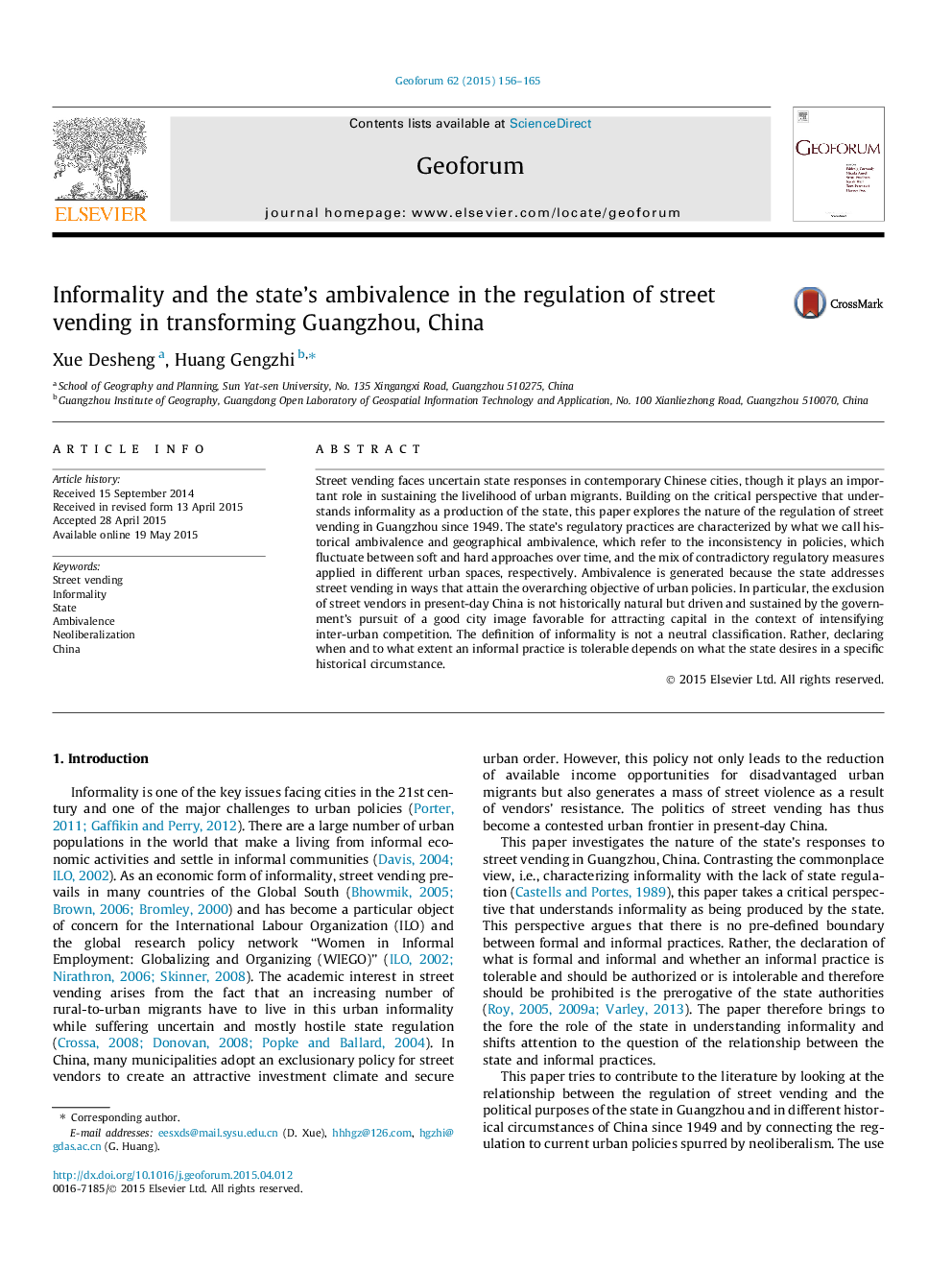| Article ID | Journal | Published Year | Pages | File Type |
|---|---|---|---|---|
| 5073578 | Geoforum | 2015 | 10 Pages |
Abstract
Street vending faces uncertain state responses in contemporary Chinese cities, though it plays an important role in sustaining the livelihood of urban migrants. Building on the critical perspective that understands informality as a production of the state, this paper explores the nature of the regulation of street vending in Guangzhou since 1949. The state's regulatory practices are characterized by what we call historical ambivalence and geographical ambivalence, which refer to the inconsistency in policies, which fluctuate between soft and hard approaches over time, and the mix of contradictory regulatory measures applied in different urban spaces, respectively. Ambivalence is generated because the state addresses street vending in ways that attain the overarching objective of urban policies. In particular, the exclusion of street vendors in present-day China is not historically natural but driven and sustained by the government's pursuit of a good city image favorable for attracting capital in the context of intensifying inter-urban competition. The definition of informality is not a neutral classification. Rather, declaring when and to what extent an informal practice is tolerable depends on what the state desires in a specific historical circumstance.
Related Topics
Social Sciences and Humanities
Economics, Econometrics and Finance
Economics and Econometrics
Authors
Xue Desheng, Huang Gengzhi,
